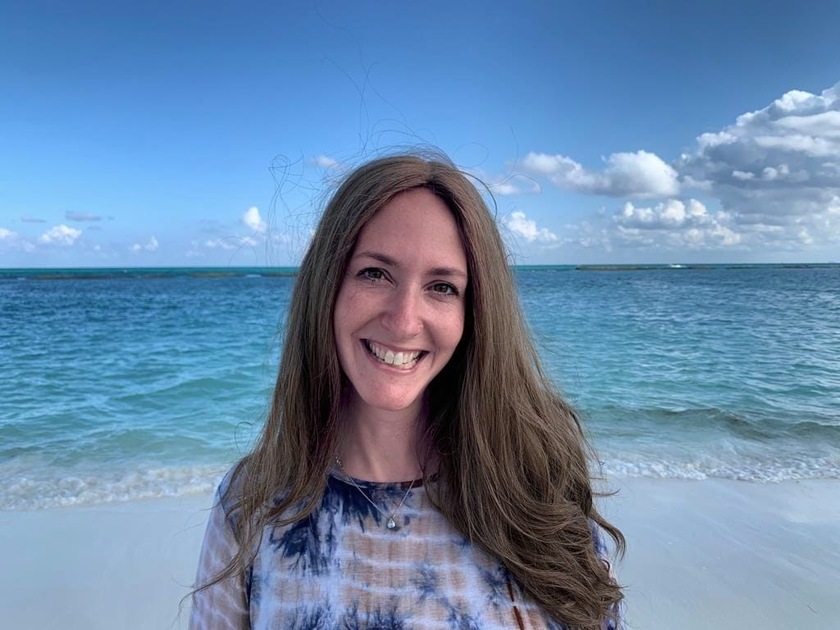
"Why Are There So Many More Divorces Nowadays?"
By: Elisheva Liss, LMFT
It’s a magnificent summer night- 75 perfect degrees, and I’m on a delightful walk over a nearby bridge to the beach, with a dear friend from high school, reconnecting the way we wish we did more often. Catching up on each other’s’ lives, careers, kids, stresses, hopes and dreams, she mentions an old mutual friend who’s on her mind, because she has recently shared that she’s getting divorced. My friend wonders aloud: Why does it feel like there are so many more divorces nowadays? As a therapist who treats couples, this question pops up a lot. The perfectly honest answer is: No one can really say for sure. Books, studies, surveys, sermons, and opinions abound. But there are so many variables, and the world has changed so dramatically in so many ways in the past century, that it’s impossible and irresponsible to point to a single definitive cause. And yet, we wonder…
What follows is simply an observation, one person's musing:
Around a hundred years ago, about a century following the industrial revolution, (and a century’s worth of other assorted revolutions,) the entire western world went to war. Twice. During that upheaval, men were called up to go to kill each other, and so women stepped up to fill the work force, en masse, for kind of the first time. Until that point, in most societies, there was a traditional gender role marriage script: Girls and boys grew up and got married within several years of hitting puberty. Premarital sex was discouraged, and procreation was a value, so they were in bit of a rush to couple off. Men grew up and became providers and protectors, and women grew up and became child-bearers and homemakers. Men were there to hunt and gather, and women were there to nurture and nourish. Women and men needed one another, because it was shameful to be single, and men couldn’t gestate, while women didn’t earn money. Family building was a two-person job. So marriage had evolved into something of a universal social contract, a symbiotic arrangement for the purpose of concerted family production. Some were probably happier and some were presumably less so, but overall, it got the job done.
Until that point in history, the focus was on collective, societal function, rather than individual self-determination. Most societies subscribed to religious doctrines as well, which promoted traditional family life. Presumably, not all marriages were happy ones, and not everyone necessarily appreciated or enjoyed their culturally assigned roles, but there was clarity, uniformity, and predictability. Once women became more financially self-sufficient, and much of the tedious housework (and manual labor) was replaced by time-saving devices and gadgets, women, and to a lesser degree men, began examining their possibilities from a more open perspective. Women were seeking and demanding rights, education, representation, self-expression, and personal fulfillment, in areas well beyond the domestic. The men’s world was changing rapidly as well, but not as dramatically as women’s. Women literally and figuratively were trying on pants, and they liked them. In the 60’s the free love movement gave the masses license to explore their feelings and sexuality, with generous assistance from an assortment of mind and mood altering substances. John Lennon asked us to imagine a world without religion, social order, or values, and so that generation began to dispense with the inconvenience of institutions like marriage and family. By the time the 80’s and 90’s rolled in, secularism and materialism were prevailing social forces. For the first time in recorded history, a predominantly G-dless society had been born. Instead of asking what G-d wants from us, we were now asking: What do we want for ourselves? We had shifted from theocentric, collectivist values to anthropocentric, individual goals. With these mores, having children, certainly more than 1.5, went from expected, to optional, to quaint, to passé. Women no longer needed men to support and protect them, had easier and safer access to birth control, and men (along with many women) were enjoying their publicly sanctioned polyamorous freedom.
When marriage goes from expected, mandatory, and mutually beneficial, to unnecessary, optional, and potentially complicating, it’s going to take a lot more glue to keep it together when the going gets rough. In traditional cultures, stigma around divorce and logistical interdependency kept even mediocre and unhappy unions in place, and continue to do so. In modern, contemporary communities, we’re no longer looking for, or satisfied with only a pragmatic partnership. Besides for love, we now seek even more sophisticated and lofty marital criteria- deep connection, emotional and sexual chemistry, intellectual and spiritual compatibility, companionship, bonding, humor, recreation, and moral support – lots of abstract new requirements. And of top of all this, we need to both fall and stay “in love”- without actually being able to define it. The old-fangled version of marriage almost didn’t even stand a chance in the face of all this pressure. So it’s easier, more realistic, and more common than ever before to part ways rather than tough it out. The Orthodox world is navigating this transition, too, and encountering a fair amount of resistance.
While discussing this phenomenon with my son, he paused, and replied: “That makes historical sense. But then is it a good thing or a bad thing?” he queried. (He’s that sort- he likes to query.)
“Both, I think,” I suggested. (I try to suggest rather than preach- I’ve learned that the hard way.)
I think it’s good that we are demanding more of ourselves and requesting more of our spouses. It’s good that standards for marriage are being raised and refined. That people don’t want to stay in abusive, dysfunctional, miserable, or depressing marriages. If the realistic threat of divorce is forcing us to become better spouses and parents, that might be a good thing. When it ends a painful saga, and gives someone a new lease on life and love, that’s a salvation. On the other hand, nobody gets married with the hope to divorce. Divorce is often hurtful and traumatic, particularly when there are children involved. So while it’s up to each couple to determine the best course of action for its family, accessible divorce can be a double edged sword, and a temptation to leave more quickly and easily. It is my belief that when there are children in the picture, and there is no abuse or egregious behavior, we should try hard to salvage the marriage before opting for divorce. But that once salvaging the marriage has been sincerely attempted, it is often more damaging for both parents and kids to be raised by unhappily married parents than by amicably, or at least, maturely, divorced ones.
We work hard to save marriages when that is what both spouses want. We also work hard to end marriages with as much grace as possible, when that is necessary. I find it painful to hear armchair anthropologists criticizing couples who split up, with flippant, judgy, throw-away lines like:
“People just don’t know what commitment means anymore.”
“Folks aren’t willing to work at a relationship- they treat them as disposable.”
“It’s because this generation is selfish and lazy.”
No, no, no. Please, no. As someone who sees the exhausting, expensive, and often desperate measures couples take to do this work, I can honestly say that the couples I know who’ve chosen to end it almost always first really hard tried to save it. And even if they didn’t – well, it really isn’t our business. What they need is our support, empathy, and respect. Each family has its own unique story and path. Our job is not to solve the mystery; it’s to be kind.
So… why are so many more people getting divorced now? In short, because they can. And even though it’s often sad or hard, sometimes they should.
Check out my new course!
A Religious Families Guide to Healthy Holy Sex Education: Sacred Not Secret
Elisheva Liss, LMFT is a psychotherapist in private practice. Her book, Find Your Horizon of Healthy Thinking, is available on Amazon.com. She can be reached for sessions or speaking engagements at speaktosomeone@gmail.com More of her content can be found at ElishevaLiss.com
 Previous
Previous

